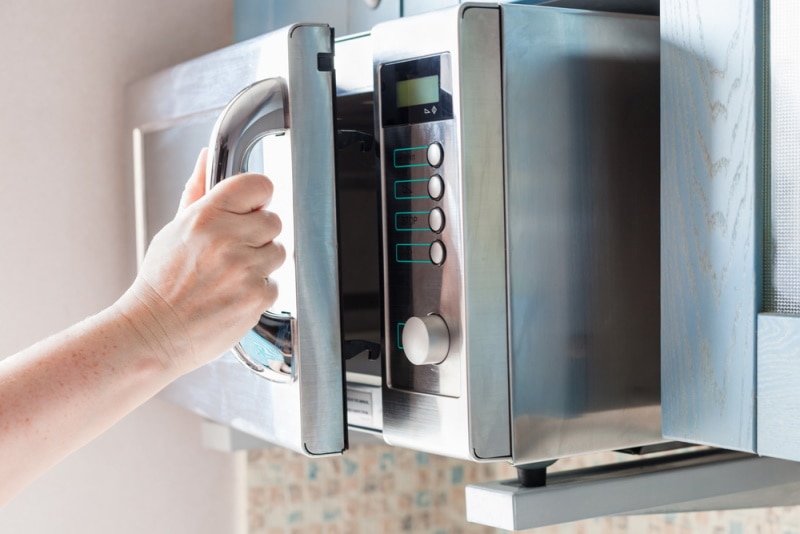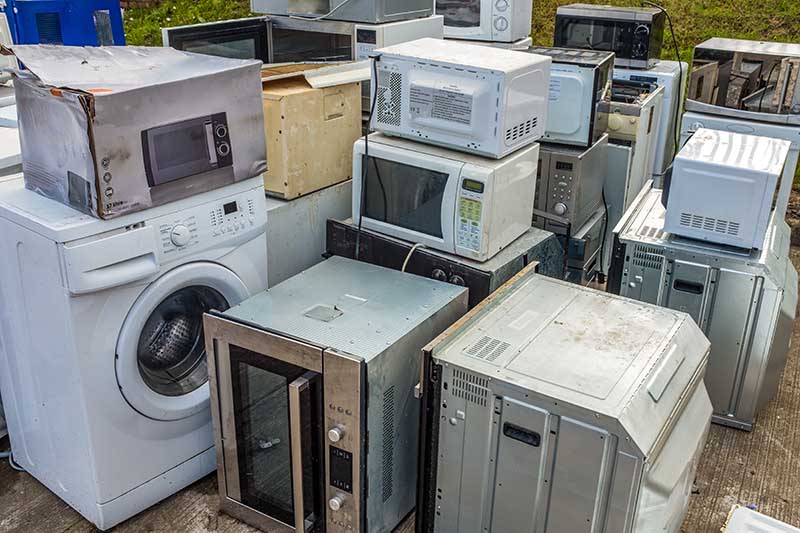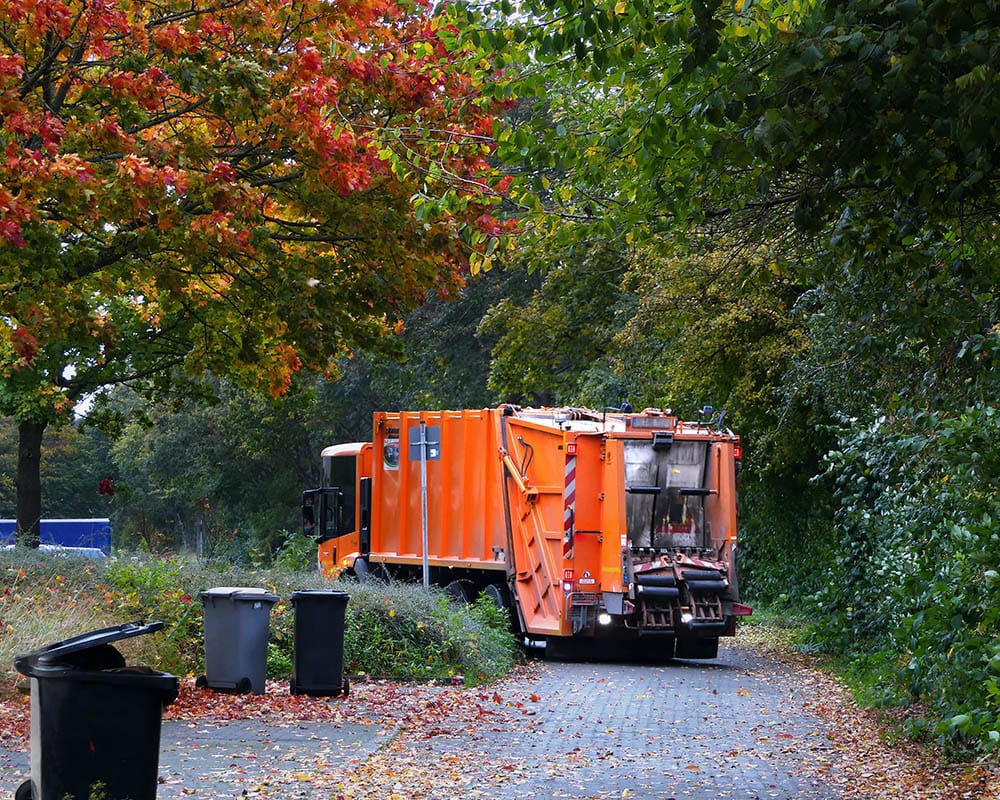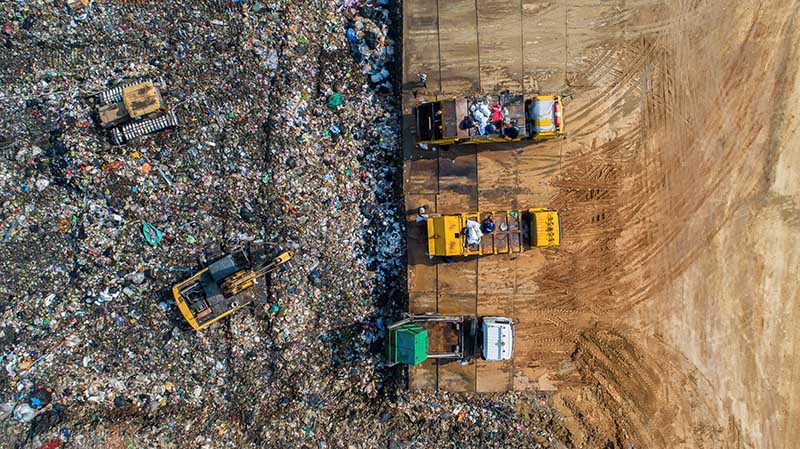Can You Throw Away a Microwave? 6 Eco Friendly Disposal Tips
-
Pete Ortiz
- Last updated:

Yes, you CAN throw away an old or broken microwave that you no longer find useful. Nobody will stop you. But the question that you ought to be asking yourself is, “Is throwing away a microwave a legal, moral, or ethical act?”
We don’t know if you’ve heard this, but according to environmental experts and advocates, global electronic waste1 has drastically increased over the years. As per the current numbers, the last 5 years have seen a 21% growth rate that’s quite frankly unsustainable, as recycling is no longer considered an effective option.
So, instead of filling up our landfills, you should explore other environmentally friendly options for disposing of a microwave.
The 6 Eco-Friendly Ways for Disposing of a Microwave
1. Sell the Microwave
Let’s assume the microwave is still in good working condition. Why toss it out when you can create a seller listing on one of those e-commerce sites that are usually brimming with potential buyers? Craigslist, eBay, Instagram, Facebook, and all the social media platforms are incredible marketing tools that can help you get that junk off your hands.
Is the listing process an arduous task?
No. It will only take a couple of minutes, and the buyers will come knocking in less than 24 hours. By the way, if you want the product to sell fast, make sure the price is lower than the competition. Remember, the prime goal is to dispose of it, and not make top bucks.
2. Give as a Donation
This is yet another option that’s available for those who are looking to dispose of old, but functional microwaves. While the microwave is a common household item, not every Tom, Dick, and Harry can afford one. There’s always someone somewhere hoping to one day own such an appliance, but due to financial constraints, they can’t. You might be the guy to make all their dreams come true.
Finding that person on your own will definitely require a lot of resources, as people don’t usually walk around with signs that say: “Need a Microwave”. The good news is, we have organizations that are structured to provide such services — and yes, we’re talking about charity organizations.
Schedule a pickup with one of your local charity organizations, or just drop it off on your way to work. If there are no donation centers near where you live, reach out to friends and family. One of them might have a kid going to college, who desperately needs a microwave.
If they don’t, get in touch with the school’s administration and ask if their employee lounge has room for an extra microwave. Or make a post on social media asking if anyone needs one. The point is, it’s impossible to not find someone who desperately needs one.

3. Consider the Manufacturer’s Take-Back Program
Manufacturers who specialize in the production of electronic devices are now part of the fight to save the planet. Most of them were willing to be part of the green movement when we all learned that climate change is a consequence of us not taking care of our environment.
To ensure all microwave users have easy access to proper disposal options, they created programs that would allow us to return old or busted microwaves at no cost.
Even if you are not looking to dispose of the whole thing, they are still willing to take back the parts that you don’t need. Some of them have gone as far as offering “trade-in” incentives such as discounts on new microwaves to prospective buyers who would consider taking advantage of the program.
The goal, as it has always been, is to reduce the number of harmful toxins being inadvertently released into our environment.
4. Reach Out to An Electronic Repair Shop
From our experience, most electronic repair shops are often ready to accept anything and everything. They don’t care if the microwave is old or busted, or even if it cannot be fixed. They’ll still take it because they know they can salvage the parts and use them to fix something else.
Funny thing is, if they’ve assessed the situation and realized the microwave is still in top-working condition, they’ll incentivize you with cash to ensure you don’t change your mind.

5. Visit An Electronic Recycling Center
We have several recycling centers around the country, but not all of them handle e-waste disposals. Those that only deal with electronic waste are popularly known as e-waste recyclers, and they are all certified.
Our government expects them to adhere to certain rules and regulations, to guarantee the effective management of e-waste and the protection of our environment.
Like in any organization, those who are part of the e-waste recycling team are trained professionals. They’ve been tasked with ensuring all electronic users have easy access to eco-friendly disposal options that would help eradicate the threat posed by the toxins and radiation that typically leak from improper microwave disposals.
To find the nearest e-waste recyclers, just visit the Earth911 website. Type in your location or zip code in the search engine and wait for the site to do its magic. You’ll also find contacts of various recyclers who could advise you on what to do should you need a suggestion.
6. Talk to Your Garbage Collector
Most garbage collectors have the contacts of people working at an e-waste recycling center. And we know this because their line of work is relatively similar. We’re certain that they’ll be glad to share their contacts the next time they show up to collect your garbage.
Some of them even make trips to the e-waste drop-off zone on a daily basis, meaning they’ll be happy to drop off the microwave on your behalf.

Frequently Asked Questions (FAQ)
Why Is It Important to Safely Dispose of a Microwave?
It’s important to find a way to safely dispose of anything that causes damage to our environment. Microwaves are considered e-waste that contains not only radiation, but also toxins that are harmful to both the environment and humans.
An article published by the National Institute of Environmental Health Sciences intimated that close to 40 million tons of e-waste are generated annually. The waste contains chemicals and metals such as zinc, lithium, lead, mercury, etc., that have a significantly high potential of compromising our health. This consequently leaves us vulnerable to various illnesses.
Do Garbage Centers Accept Microwave Disposals?
By definition, e-waste is any electronic device that has gotten to the end of its useful life. The United States Environmental Protection Agency (EPA) has completely barred garbage centers from ever accepting such waste, due to the fact that it contains toxic substances. The law is there to ensure proper disposal, and prevent the toxins from finding their way back into our systems.

Are Old and Busted Microwaves Accepted at Home Depot?
Just like manufacturers, established retailers around the country have designed their own robust programs to help us save our environment. Home Depot, Best Buy, Walmart, Staples, Apple, Habitat ReStores, and even Amazon have partnered with recycling companies to lower the amount of waste being directed to landfills. So yes, they’ll accept your old or busted microwave.
Final Words
You’re morally obligated as a responsible citizen to protect our environment. Don’t make the mistake of throwing away an old or busted microwave into the bin, just because you can. Such an act will not only put your life at risk, but those of other people as well. If the law doesn’t catch up with you, your guilty conscious will.
Featured Image Credit: vvoe, Shutterstock
Contents


